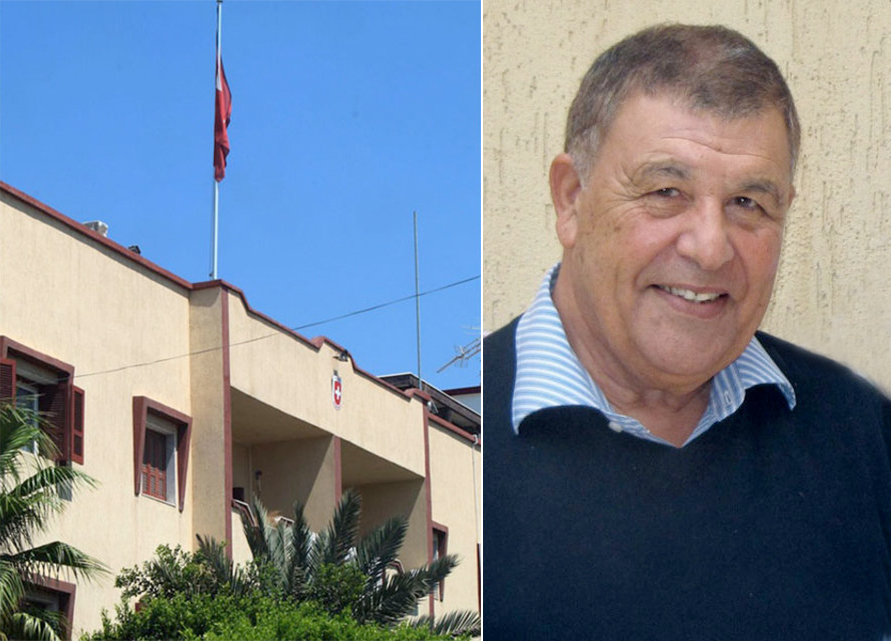Gaddafi’s jihad call is “a question of honour”

Libyan leader Moammar Gaddafi’s call for holy war against Switzerland is an attempt to raise his standing in the Muslim world, an expert tells swissinfo.ch.
But Reinhard Schulze, the director of Islamic Studies at Bern University, says that the Muslim world is used to Gaddafi’s rhetoric and will not heed his call for “jihad”.
The “enfant terrible” of the Muslim world, as Schulze describes him, does not have the authority to call for jihad, a measure usually undertaken by Islamic leaders, not politicians.
Gaddafi made the remarks in Benghazi, Libya’s second-largest city, at a gathering marking the birthday of the prophet Mohammed on Thursday. He declared Switzerland a country of infidels who had “destroyed Allah’s house” and said jihad against the country was “not terrorism”.
A vote passed by the Swiss banning the construction of minarets was grounds for jihad, he said. Switzerland’s foreign ministry has explained to Muslim leaders that the vote was not against Islam and that freedom of worship is still in place.
Libya and Switzerland have been at odds since the brief arrest of Gaddafi’s son, Hannibal Gaddafi, in July 2008 on charges that he and his pregnant wife mistreated their staff while staying at a hotel in Geneva. The charges were later dropped and the staff compensated.
swissinfo.ch: Why has Gaddafi launched this call for jihad now, months after the outcome of the vote on banning minarets in Switzerland?
Reinhard Schulze: I think the main reason is that Gaddafi is trying to address an Islamic public which is not specifically orientated to the West, to the European public.
He wants to get a position within the Islamic public which gives him the power to say that he is the leader of the Islamic world. That’s why he used the birthday of the prophet Mohammed and the assembly where people had gathered [to make his call]. The Libyan media say that about 90 delegations from 90 countries were coming to Benghazi.
In this respect he is trying to give himself the image of being a leader of the Islamic world. He uses specific topics which seem to be discussed in the Islamic world and tries to show that it is a question of honour of Islam etc. That’s why he uses the Swiss question as the main topic.
swissinfo.ch: Some would say Gaddafi does not have any clout from a religious perspective and is not entitled to declare jihad.
R.S.: Not at all. From a legal point of view he is not allowed to do this at all, because it is not the task of a political leader to talk about jihad. That’s the traditional point of view. It is only Islamic scholars who are allowed to say whether a conflict should be interpreted as jihad or not.
swissinfo.ch: Would his words therefore carry no weight in the Arab world?
R.S.: None at all. I think because he is considered by most Muslim leaders as being an ‘enfant terrible’. They are already used to his rhetoric. He has often talked about jihad, about honour, about resistance etc. Nobody really considers [his call for jihad] very important.
swissinfo.ch: How should it be taken by Switzerland and what does it really mean for the country?
R.S.: Because Gaddafi did not address Switzerland directly in this respect or use the negotiations between the European Union and Libya as a forum for his attacks, I think the Swiss government should say ‘well that’s part of his Islamic play and that’s not part of our diplomatic conflict’.
swissinfo.ch: So Switzerland should not be taking this seriously?
R.S.: Not seriously in the sense that it is really meant as an attack against Switzerland.
swissinfo.ch: Why is Gaddafi so angry with Switzerland?
R.S.: It’s again a question of anger, of honour, family honour. It has not been resolved. From his point of view Switzerland did not tackle the problem at all, from his point of view Switzerland is acting only on a diplomatic, political level and is not addressing the question which for the Libyan system is very important – the question of honour.
swissinfo.ch: Does this latest development indicate that things are heating up?
R.S.: In one respect it is heating up because the internal political institutions in Libya now have their hands tied because they are not in a free position to deal with the question of Max Göldi, for example. They have to cope with the rhetoric of Gaddafi and find a solution which on the one hand gives a chance to calm bilateral relations between Switzerland and Libya.
On the other hand they have to serve their leader and their leader is now talking of jihad. So for them the situation has become very complicated.
swissinfo.ch: Isn’t Gaddafi shooting himself in the foot with this call? Won’t he make other economic partners think twice about doing business with him?
R.S.: Of course, I think business partners will think about that. Libya’s international economic relations are now in a position of great insecurity and business actors of course are asking themselves whether they have a reliable partner within the Libyan system. And of course nobody really knows what will happen.
Jessica Dacey, swissinfo.ch
Whereas the Swiss foreign ministry refused to comment on the remarks, the director-general of the United Nations in Geneva, Sergei Ordzhonikidze, said Gaddafi’s remarks were “unacceptable within the framework of international relations”.
A spokesman for top European Union official Cahterine Ashton said the remarks had come at an “inopportune time” as intense diplomacy was underway to find a deal between Switzerland and Libya.
July 2008: Hannibal Gaddafi and his wife are charged with abusing their staff. The staff are later compensated and charges dropped. Swiss nationals Max Göldi and Rachid Hamdani are arrested. Swiss businesses are forced to shut and flights to Tripoli are cut.
June 2009: Libya withdraws assets from Swiss banks.
August: The Swiss president apologises for Hannibal’s arrest.
September: Göldi and Hamdani disappear after a medical check-up in Tripoli.
October: A deadline for normalising Swiss-Libya relations passes.
November: Swiss ministers say they will pursue visa restrictions for Libyans. Göldi and Hamdani are sentenced to 16 months in prison for visa violations.
January 2010: Hamdani’s term is overturned and Göldi’s is cut.
February: After reports of a Swiss visa blacklist of 188 top Libyans, Libya stops issuing visas to citizens from the Schengen zone. European foreign ministers try to hammer out a solution. Göldi starts prison term. Hamdani is allowed to leave Libya.
February 25: Gaddafi declares holy war against Switzerland.
Reinhard Schulze is a German linguist, historian, professor and director of Islamic Studies at Bern University.
He studied Islam, Latin languages, Arabic, and linguistics at Bonn University, and went on to teach at the universities of Bochum, Bonn, and Bamberg before joining Bern University in 1995.
Professor Schulze is interested in both the historical development and spread of Islam, and in its contemporary understanding and practice.
As an author, he wrote ‘A Modern History of the Islamic World’ (New York University Press, 2000), and he has published widely on the topics of social, economic, and political studies of the Middle East, Asia, and Africa.

In compliance with the JTI standards
More: SWI swissinfo.ch certified by the Journalism Trust Initiative














You can find an overview of ongoing debates with our journalists here . Please join us!
If you want to start a conversation about a topic raised in this article or want to report factual errors, email us at english@swissinfo.ch.